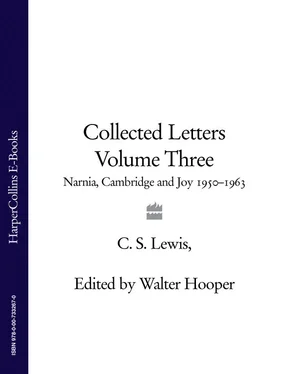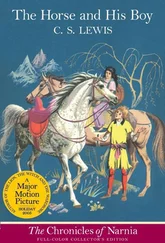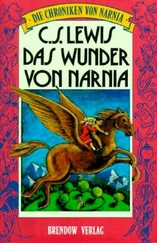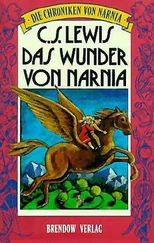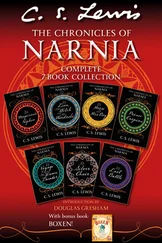It is very odd about the envelopes; we certainly received them, and they were all used up in due course. Why one never went back to it’s home, neither of us can understand. Of course I write to twenty English folk for one American, and therefore the odds against your getting one back would be considerable. Our very small envelopes are due, I understand, to the fact that we are very seriously short of paper—having broken our contract with Canada, for some reason I have never followed. I don’t think there is any mail restriction.
The whole question of the atomic bomb is a very difficult one: the Sunday after the news of the dropping of the first one came through, our minister asked us all to join in prayer for forgiveness for the great crime of using it. But, if fwhat we have since heard is true, i.e. that the first item on the Japanese anti-invasion programme was the killing of every European in Japan, the answer did not, to me, seem so simple as all that.
I read with interest and indignation your story of the experiment on the monkeys; there seems no end to the folly and wickedness of this world. Dogs are jealous; perhaps the besetting sin they inherited at the Fall. *
I see that in rambling along I have nearly forgotten to thank you for the impending gifts. I hope, indeed if I may so put it, insist that you give up spoiling me in this way if prices rise still more against you.
With all good wishes from us both to you both for 1951,
yours sincerely,
C. S. Lewis
*On second thoughts, I don’t think it is a sin in them, tho’ it is in us. 207
TO SISTER PENELOPE CSMV(BOD):
Magdalen College
Oxford
Dec 30/50
Dear Sister Penelope
Yours was a cheering letter which warmed my heart (I wish it wd. have warmed my fingers too: as it is they will hardly form the letters!).
I can’t offer any comments on the re-planning of the novel, not now having all the problems clearly enough in my head. I feel like saying it wd. be a pity to lose Adam, but then one has really no business to compare a work with its own pre-history.
I’m delighted about the Biblical plays which I remember doing me a lot of good when I read them. They may be, in a way, your most important work.
Our state is thus: my ‘mother’ has had to retire permanently into a Nursing Home. She is in no pain but her mind has almost completely gone. What traces of it remain seem gentler and more placid than I have known it for years. Her appetite is, oddly, enormous. I visit her, normally, every day, and am divided between a (rational?) feeling that this process of gradual withdrawal is merciful and even beautiful, and a quite different feeling (it comes out in my dreams) of horror.
There is no denying—and I don’t know why I should deny to you—that our domestic life is both more physically comfortable and more psychologically harmonious for her absence. The expence is of course v. severe and I have worries about that. But it wd. be v. dangerous to have no worries—or rather no occasions of worry. I have been feeling that v. much lately: that cheerful insecurity is what Our Lord asks of us. Thus one comes, late & surprised, to the simplest & earliest Christian lessons!
Rê pseudo- or deutero Screwtapes. My own feeling is that a literary idea ought to belong to anyone who can use it and that literary property is a sort of Simony. But you might find my publisher taking a different view. I don’t know, though: perhaps not, if it was published with proper acknowledgements. Let me know if it reaches the stage of a practical decision. I am glad to hear your inner news. Mine, too, is I think (but who am I to judge?) fairly good. Oremus pro invicem, 208
Yours most sincerely
C. S. Lewis
TO RUTH PITTER(BOD):
Magdalen College
Oxford
Dec 30/50
Dear Miss Pitter—
I don’t know if I can write, my fingers are so cold. (Almost the only pleasure of which age has yet deprived me—I mean the only good one—is the power of enjoying hard frost. Otherwise youth’s a stuff that’s over-rated).
What helps you in Theocritus hinders me, and in the Georgics too: i.e. when I’ve looked up the vegetables in the Lexicon, I don’t know the English any better than the Greek. The equation ‘γλώε,’ 209 the lesser mud-wort, fangoleum paludis’ , is to me a = b where both are unknown. Not that I don’t enjoy the vegetables when I meet them in the cool, green flesh: but each individual is new to me each time. Heroic books–is this yours? And for a ‘work in progress’? It is obviously some poet’s prose, sweet on the tongue. I feel that about the poet being a Parthian too: but am not quite sure whether it doesn’t come from living in an un-poetical age when the poet is perilously near being ‘vestigial’. Did people feel that way about Virgil or Firdausi? 210 (Here have been interrupted for an hour by an elderly lady asking moral advice!).
I hope you had a nice time with the Duchess. 211 Shd. I like her poetry? I don’t know it. My brother joins me in all good wishes and I must go to lunch. My humble duty, Ma’am
Yours very sincerely
C. S. Lewis
TO GEORGE SAYER (W):
Magdalen College
Oxford
Dec 30. 50
My dear George
What dears you both are: but a ruddy fellowship exam will keep me immobilised right up till term. Thanks all the same. Can you come up for a night any time after our term begins (Jan 13)?
MS rec’d safely. Yes, la belle Baynes 212 will do the lot: Magnae virtutes nee minora vítía. 213 Her Mouse is one of her best beasts, however.
No, I don’t wish a cheque! You have both been much in oratíoníbus nostris . Name your night & do come.
Jack
1See Roger Lancelyn Greenin the Biographical Appendix to CL II, pp. 1039-43. Green was the primary reader and critic of Lewis’s Narnian stories.
2For information about the writing of the Narnian stories see Roger Lancelyn Green and Walter Hooper, C. S. Lewis: A Biography (London: Bles, 1974; rev. edn HarperCollins, 2002), ch. 11.
3This is a letter of reference for Lewis’s former pupil, lonathan Francis ‘Frank’ Goodridge, whose biography appears in CL II, p. 936n. Goodridge was applying for the position of Senior Lecturer in English at St Mary’s College, Strawberry Hill, Twickenham, London. He taught at St Mary’s College, 1950-65. See Goodridge’s comments on this testimonial in CSL: The Bulletin of the New York C. S. Lewis Society , Whole No. 75 (Ian. 1976), p. 13.
4This is one of those occasions on which Lewis misspelled his pupil’s name.
5This was the Oxford University Socratic Club, founded in 1941 by Stella Aldwinckle with Lewis as its first president. See Stella Aldwincklein the Biographical Appendix. The club’s purpose was to discuss the pros and cons of Christianity, and it met weekly during term-time. Goodridge was secretary of the Socratic Club, 1947-8. For a history of the club see Walter Hooper, ‘Oxford’s Bonny Fighter’ in Remembering C. S. Lewis: Recollections of Those Who Knew Him , ed. James T. Como (San Francisco: Ignatius Press, 2005). This book was previously published as C. S. Lewis at the Breakfast Table (1979; new edn, 1992).
6See the biography of George Rostrevor Hamilton in CL II, p. 707n.
7Horace (Quintus Horatius Flaccus), Satires , II, vi, 65: ‘O nights and suppers of gods!’ Horace (65-8 BC) was one of the greatest of the Roman poets.
8Claudian, De Raptu Proserpinae , II, 282-3: ‘There are other stars for us.’ Pluto speaks the phrase, attempting to calm Persephone’s weeping, telling her that he is a person of importance and that there is an upside to being in the underworld.
Читать дальше
